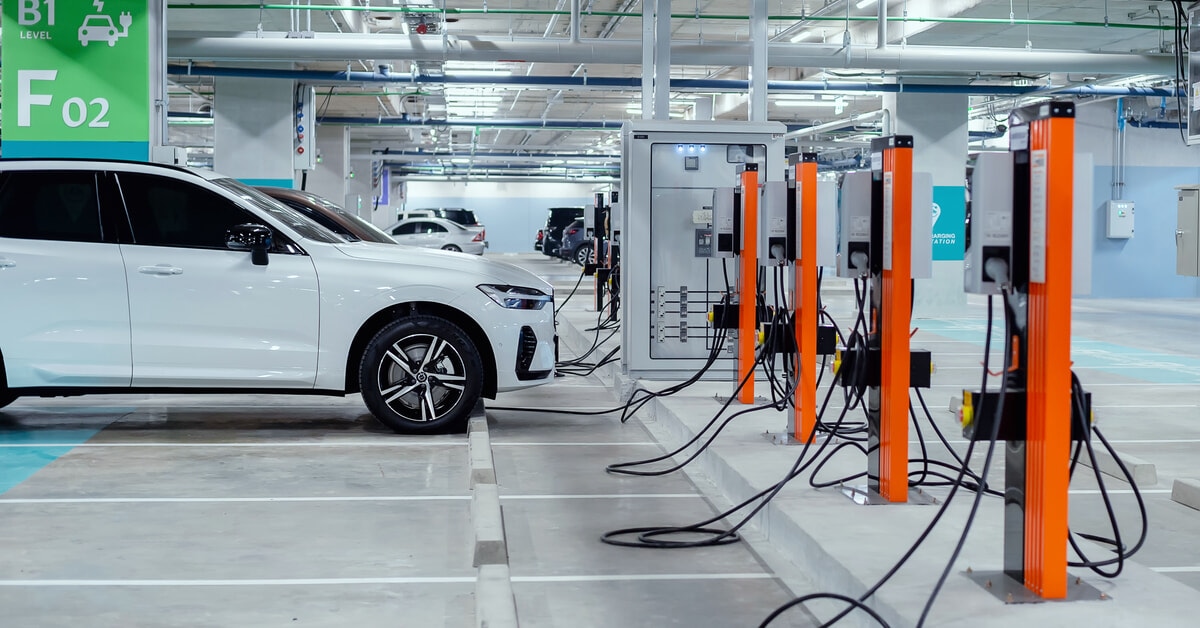CHOOSE
A DIFFERENT TERRITORY

While the automotive industry prepares for the widespread uptake of EVs during the next decade, end-of-life vehicle (ELV) recyclers are confronting a similarly profound challenge: how to effectively and efficiently recycle the state-of-the-art batteries that power them.
Recycling these batteries is an essential element of making EVs sustainable, as they contain critical materials such as lithium, cobalt, nickel, manganese, and graphite. They also provide a rich source of steel, aluminium, and copper.
As some of the world’s leading recycling companies work on finding the best method of recycling EV batteries, two schools of thought have begun to emerge.
Some in the industry have focused on bulk shredding these batteries as soon as they arrive on site, while others – including EMR – have focused on dismantling these units first, finding opportunities for reuse and remanufacturing. Recycling then offers an opportunity to safeguard these critical materials where repair or reuse isn’t possible.
Both options have advantages and disadvantages and, with a decade or more to wait until EVs begin to arrive with ELV recyclers at scale, the industry has some time to get it right.
For those recyclers focusing on bulk shredding these units whole, there is an opportunity to save on disassembly costs. This is a significant advantage that has the potential to reduce the cost of recycling these batteries, however, it also relies heavily on advanced chemical and mechanical separation processes, many of which are still in development.
For metals such as lithium – integral for so much of the green technology required for net-zero – there is simply no option to create a saleable ‘low grade’ recycled material, so introducing a range of additional contaminants during the bulk shredding process comes with profound risks.
Equally, these batteries are highly flammable, and these recyclers must develop specialist shredding and separation techniques that ensure that dangerous fires don’t happen.
So, what’s the alternative? Over the past three years, EMR has been working with car manufacturers, energy companies and academics on RECOVAS, a project to reuse, remanufacture and recycle EV batteries.
By creating a new circular supply chain, RECOVAS allows these batteries to have a second useful life – in a new EV or as part of the UK’s growing energy storage network – with recycling providing a ‘back stop’ option for damaged, faulty or warn out units.
To achieve this, EMR is working with the automotive industry in a way that might have seemed impossible even just a few years ago, exploring how the design of these vehicles can be adapted to make disassembly and reuse easier, faster and less carbon intensive.
Yet, even with batteries that have been better designed for recycling, the process of disassembly will be far more time consuming and costly compared to simply shredding these batteries in bulk. The only way this will be competitive is to create a host of new disassembly technologies, utilising AI (Artificial Intelligence), robotics and machine learning to support our teams.
So, these two approaches represent two very different possible futures for the EV battery recycling sector. And, if you’re reading this and think there might be another, different option for recycling these essential components of the UK’s soon-to-be decarbonised transport network, then EMR wants to hear it.
Personally, I believe that - as the industry continues to invest in these two models - there will inevitably be a level of convergence. The advanced separation techniques developed by the those working on bulk shredding systems will improve the efficiency and effectiveness of recycling for projects such as RECOVAS. At the same time, working with the automotive industry to make battery units easier to disassemble could allow those working on bulk shredding systems to integrate an element of reuse into their process, enabling the highest performing EV batteries to have a second useful life.
Whichever system ends up becoming the industry standard in the years ahead, it will have been developed thanks to the tireless work of companies approaching the challenge from a variety of angles and, at EMR, we’re committed to playing our part in this development.